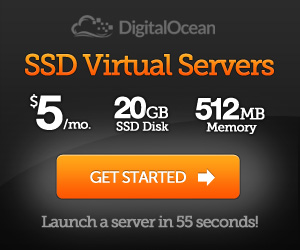
A Brief Analysis Of The Best Linux Operating Systems
Linux, Slider December 19, 2014 , by Mark Walker No Comments on A Brief Analysis Of The Best Linux Operating SystemsA lot of people are trying to find out which distributor they should use. They know some of the specific requirements they have, and they have heard of a few names, but actually choosing their Linux operating system remains a confusing matter. One way to find a good system is to simply go online and look for some reviews, after which you can base your decision on the star ratings that are given. However, in doing that, you are not really giving yourself an opportunity to find the one that is just right for you. For instance, the top operating system may tick all the boxes, but at the same time it may only be suitable for someone who is an advanced Linux user. Hence, it is better to actually learn about the different distributors that are out there, giving you an opportunity to not just find out which one is the best one, but also which one actually meets your needs the most. Let's take a look, therefore, at the three top Linux operating systems, each of which would receive a five star rating, and why these are so good.
- Linux Mint
Linux Mint is one OS that is really worth testing out. Their goal is to evolve, rather than revolt. This means that it is oriented towards the regular desktop computer with traditional designs. It has system trays, task bars and menus and other options that people simply expect because that is what they have gotten used to.
The operating system is "straight out of the box." This means that once it is installed, you can get to work with it. You don't need to have any other software installed and the system is incredibly user-friendly. Hooking up to the internet is very easy, including the installation of any custom peripherals you may need.
The operating system works on various types of desktop environments, including MATE, Cinnamon, KDE and XFCE. This demonstrates how useful it can be. The KDE and Cinnamon desktop environments are most suited for new hardware, whereas the other two run on older models. Because Linux always has clear themes, this operating system will look and behave exactly the same way regardless of which environment you use.
- Ubuntu
Ubuntu is one of the best known distribution systems and most people new to Linux will automatically go for this one. However, too many people pick this operating system for its name only, and not because they actually know about its advantages and disadvantages.
Ubuntu does what Microsoft tried but failed to offer with Windows 8. Once you are used to how it works, the environment is really slick and user-friendly. Additionally, it works on laptops, desktops, phones and tablets. However, some people feel that Ubuntu is intrusive rather than offering integration. As a result, you will see various product adverts on your desktop that you will probably not be interested in at all. There are other buntus you could go for if this does bother you, including Lubuntu, Kubuntu and Xubuntu.
Ubuntu does not try to test the boundaries like Linux Mint does. It is all about modernization and forward thinking and this is not something everybody wants. If you really want to have a good operating system, you should integrate Steam into it as well, particularly if you like gaming. Ubuntu is a system for everyday people.
- Debian
Finally, there is Debian. This is one of the oldest distributions in the market, out-dating Linux Mint and Ubuntu. It has a huge amount of applications within its repositories, and users have the opportunity to install all of these. One of the great benefits is that Debian only offers free software for installation and none of their products are proprietary or third party.
However, installing Debian can be quite confusing and complicated, and not just because of the huge range of software that are available. An added difficulty is that there are numerous versions of Debian, which means you risk using an unstable branch or installing programs that don't work on your machine. There is a completely stable version as well, but the software on there tends to be quite old and dated.
A lot of people compare Debian to a type of Linux Lego. It is designed for those who want to build something that meets their personal needs completely. Hence, if you don't have a lot of computer knowledge, this may not be the system for you. However, if you love programming, then you can have a lot of fun with Debian.
- The Quintessence of Cybersecurity and Stellar IT Support - November 9, 2023
- Choosing the Right Payment Processor for Your Website - March 3, 2022
- Choosing a business management system - June 11, 2020
Related Articles
-
-
Fantastic Web Design Tips That Will Help Improve Your Site
December 15, 2014
-
Top Trends Dominating The World Of SEO
December 10, 2014 -
Why Does Everybody Love Docker?
November 28, 2014
-
7 Options That Offer A Good Alternative To Google AdSense
November 22, 2014
Latest Reports
-
1 Upgrading to WordPress 4.5
May 5, 2016 -
2 WordPress Plugins
January 26, 2016 -
3 What Are CMS Platforms And How Do You Choose The Right One?
November 19, 2014 -
4 How To Create A Successful Website On A Budget
November 18, 2014
-
1 Choosing the Right Payment Processor for Your Website
March 3, 2022 -
2 How To Write An Excellent Product Review
December 26, 2014 -
3 Fantastic Web Design Tips That Will Help Improve Your Site
December 15, 2014 -
4 Tips You Need To Know About Web Hosting
November 26, 2014 -
5 The Biggest Websites In The World Today
November 23, 2014
-
1 Fantastic Web Design Tips That Will Help Improve Your Site
December 15, 2014 -
2 A Review Of 3 Web Design Software Packages For Beginners
December 5, 2014 -
3 Four Fantastic Tips For Web Development
November 24, 2014 -
4 What Are CMS Platforms And How Do You Choose The Right One?
November 19, 2014 -
5 How To Create A Successful Website On A Budget
November 18, 2014
-
1 Why Does Everybody Love Docker?
November 28, 2014 -
2 Tips You Need To Know About Web Hosting
November 26, 2014 -
3 Clearing postfix mail queue by domain
September 9, 2014 -
4 Linux disk full errors but disk has space
September 9, 2014







Leave a comment
You must be logged in to post a comment.